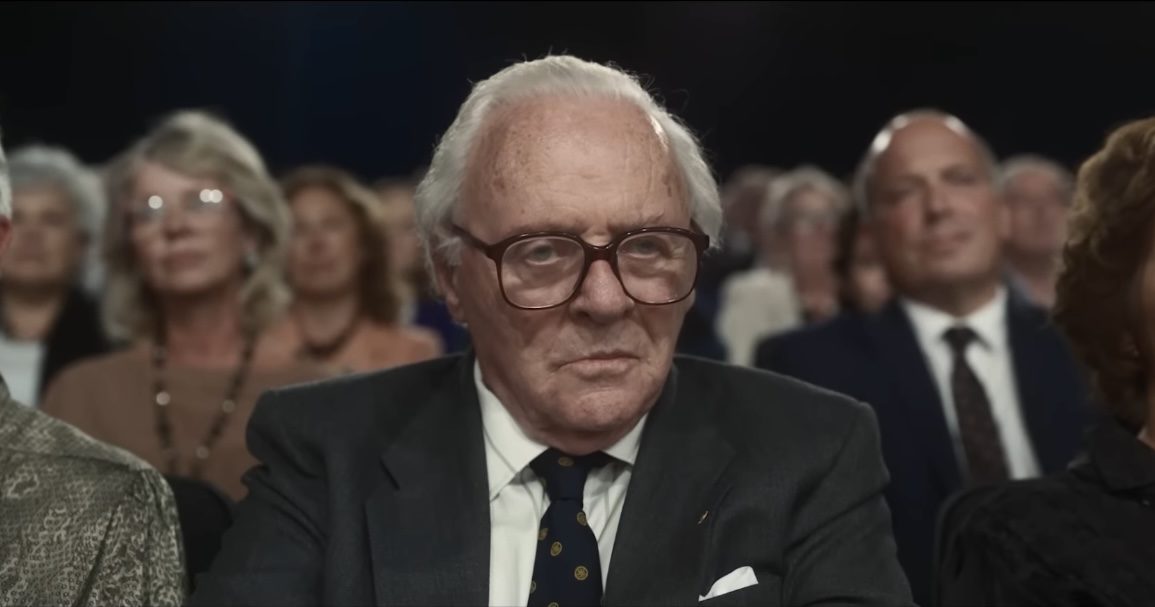James Hawes directs One Life. The film stars Anthony Hopkins, Johnny Flynn, Lena Olin, Romola Garai, Alex Sharp, Jonathan Pryce, and Helena Bonham Carter.
One Life is like poor-quality chocolate – theoretically good ingredients, but the easiest possible version of them, so all it needs to become palatable is to be made sickeningly sweet. The sugar makes it easy to consume with little consideration. Once you look beyond the sweetness, you see it for what it is – a little beyond a play on your most basic senses to evoke emotion.
Veteran British television director James Hawes makes his first jump to feature film with One Life, a Holocaust drama about the life of Sir Nicholas Winton, played – in the film’s biggest joint strength – at two ages by Johnny Flynn and Anthony Hopkins. Both actors are indeed excellent, with Hopkins evidently one of Britain’s greatest actors, even in a role through which he could sleepwalk. Johnny Flynn, whose version of Winton is afforded a greater part than the trailers might have you believe, does his best to make the most of a one-note script. He and Hopkins essentially do the best they possibly can to elevate the material they are given.
The producers of One Life likely knew that audiences – particularly the older British demographic – would take little convincing to see an Anthony Hopkins holocaust drama, and perhaps this is why it seems like much of its production has been phoned in. When you have a naturally compelling true story, it is easy to get away with generic storytelling and direction. It is disappointing that Hawes’ feature debut is so uninspired – a man with such memorable television under his belt as Doctor Who’s “The Empty Child” and, more recently, Slow Horses is clearly capable of something with more oomph. The film’s greatest moments come directly from its real-life story, with even the most cynical likely to have their heartstrings pulled by the climactic recreation of Winton’s appearance on That’s Life! In 1988 – a moment entirely spoiled in a moment of trailer treason months before the film’s release (defended by some as forgivable since it’s a real historical event).
In fairness to the film’s producers, they have presumably achieved what they wanted the film to be: it brings the story of Winton to an audience who won’t remember his ’88 television appearance and attracts an audience of older filmgoers compelled by either the nostalgia of That’s Life! or the ever-popular genre of Holocaust drama. It is certainly effective as a vehicle for some Anthony Hopkins awards bait. But in a year where Jonathan Glazer’s The Zone of Interest has re-proven that films based on such tragedy can be more than history – can be art – there is little need for the basic. Nicholas Winton was indeed a great man. He, and, crucially, the Jews who suffered and died, deserve their story to be told with greater passion.
I cannot pretend that there is a large level of subjectivity for me, as my great-grandparents were among the lucky ones who survived the Holocaust and got to start a new life in Britain. I just hope that if their story is ever told, it is less generic than this.









